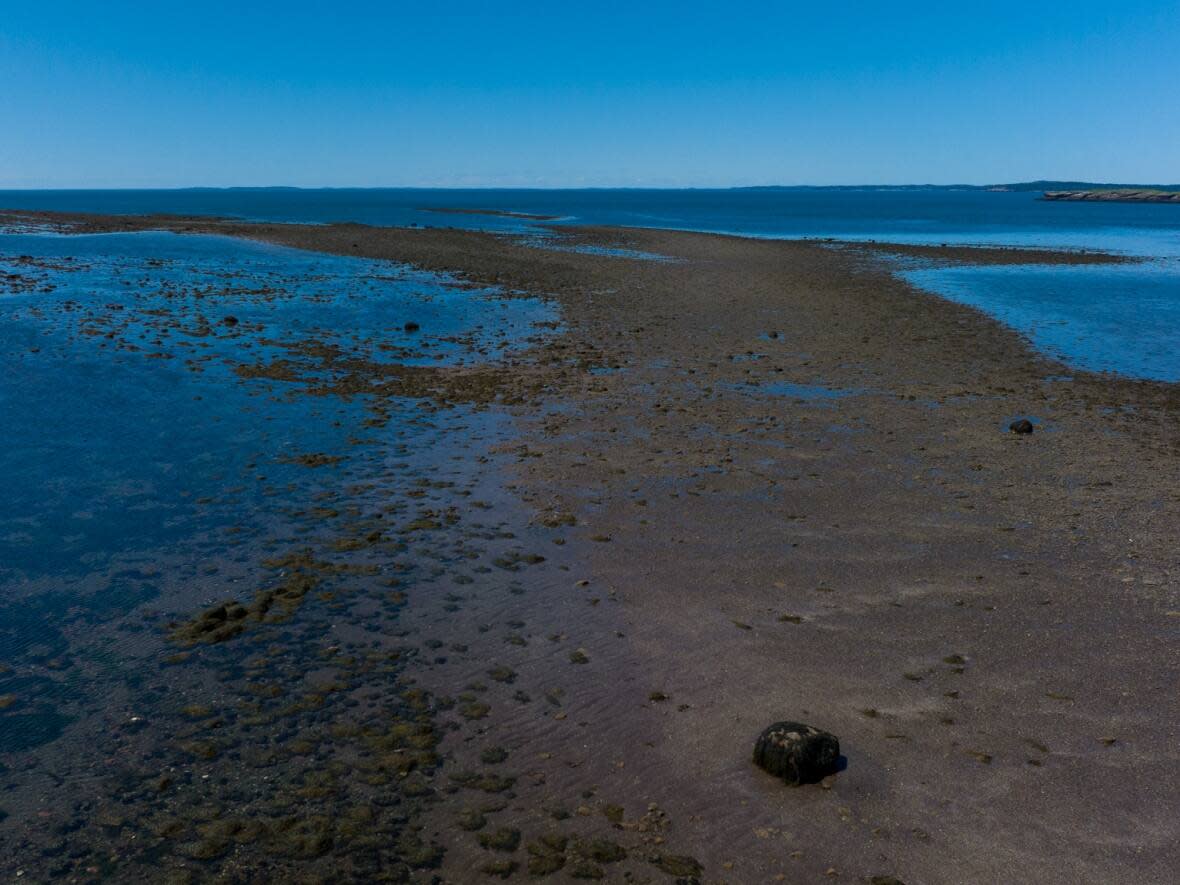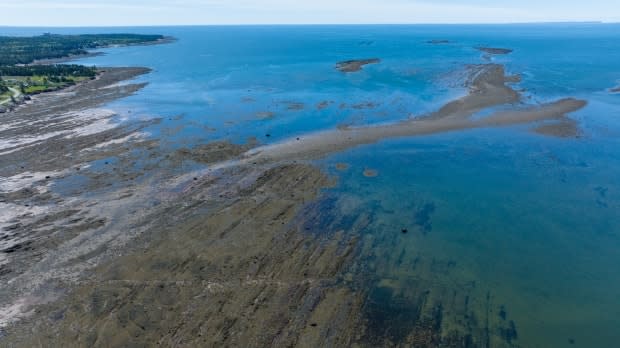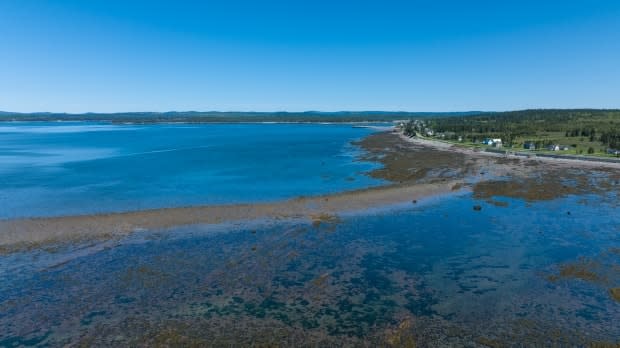2 men, 5-year-old boy rescued with minutes to spare, trapped by rising tide

Two men and a five-year-old boy were standing in knee-high water, surrounded by thick fog and just minutes from being overwhelmed by the rising tide when they were rescued Sunday.
It was one of two serious calls received by the Musquash Fire Department over the May long weekend, including one on Saturday when a man fell out of his boat and died.
Wayne Pollock, fire chief of Musquash Fire Rescue, said the two events are a reminder that the picturesque Musquash watershed can be dangerous if people don't take the proper precautions.
"The area that we serve down here … is considered a recreational paradise. And there's always people active in the area," he said.
"We've had many calls over the years. We had to sort of refocus our training and the equipment that we purchased to deal with these type of rescues."

On Sunday, crews had to use that new equipment, including a light, easy to manoeuvre boat, to rescue three people trapped on the Maces Bay ledges.
The ledges are sandy, rocky, elevated areas of the Bay of Fundy that are exposed at low tide, and under water at high tide.
Pollock said he believes the two men in their late 20s and the child were there to harvest dulce, clams or other seafood. He said they did not notice the tide advancing until it was too late.
"As the tide comes in, it slowly surrounds the ledges, and then all of a sudden, they're not paying attention, they realize that 'Oh I'm stranded here' and the water just keeps getting higher and higher.'"
He said the three were minutes away from being "swept out to sea."

One of the men had a cell phone and called 911. The fire rescue team ventured out on a boat to find them, but it wasn't easy.
"It was extremely foggy there, you couldn't see much more than 15, 20 feet in front of you," Pollock said.
"We had to use all our navigational equipment to get over to where the ledges are located."
To locate the three, the man stayed on the phone with 911 while crews on the rescue boat blew an air horn. The man would tell the operator where he thought the sound was coming from, and the operator would radio in directions for the rescue team.
'No worse for wear'
Pollock said when they were rescued, water had reached their knees.
The three were uninjured and happy to be rescued, Pollock said.
"These were very good spirits, happy for us to get to them in time … they were no worse for wear."
He said in this situation, life jackets would have given the three a little more time.
"If the ocean gets a hold of you, you know, you don't last long even with a life preserver, but it will buy you some extra time that might allow us to get there," he said.
Pollock said it's essential that people carry a cell phone, check the tide schedule and pay attention when they are on the ledges, as the tide can rise very quickly.
Man tried to rescue friend who fell off boat
On Saturday, at around 4 p.m., a 45-year-old man who was fishing had a heart attack and fell into Loch Alva Lake, Pollock said. His friend jumped in after him but wasn't able to get himself or the other man back into the boat.
People fishing nearby noticed the men in the water and a camp owner used his boat to get them to a more accessible area closer to the Loch Alva Dam.
The men were in the water for about 30 minutes, and because of the remoteness of the area, it took another 30 minutes to get them to Stillwater Road to an ambulance, Pollock said.
"One was very hypothermic. And the other, as I say, was unresponsive," he said.
Crews performed CPR on the 45-year-old until he was handed over to paramedic. The men were taken to hospital, where the 45-year-old was pronounced dead. The other man was later released from hospital, Pollock said.
RCMP spokesperson Jullie Rogers-Marsh said the RCMP respond to all cases of sudden death, and an autopsy has been done. She said the coroners' office will review the cause of death and decide if further investigation is necessary.
Pollock said four or five people have died by drowning in the area in the last few years.
He said he doesn't know if the two men were wearing life jackets, but anyone going near the lakes or rivers should wear one.
"It's unfortunate, but the majority of individuals that drowned in the area had not been wearing a life jackets, and there would be a lot less fatalities out there if everybody would take the time to put a life preserver on," he said.


